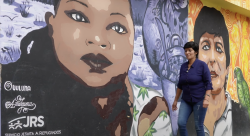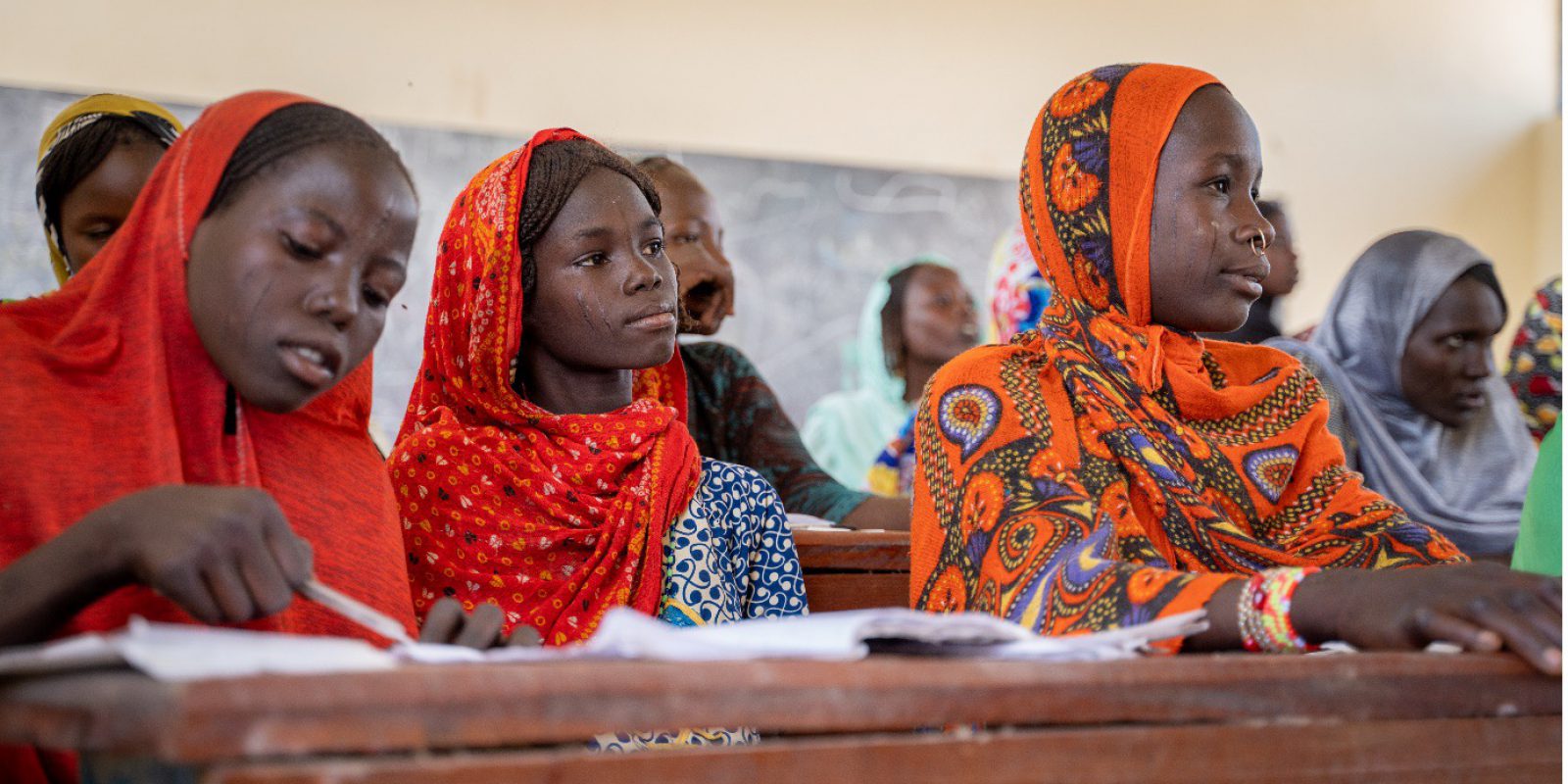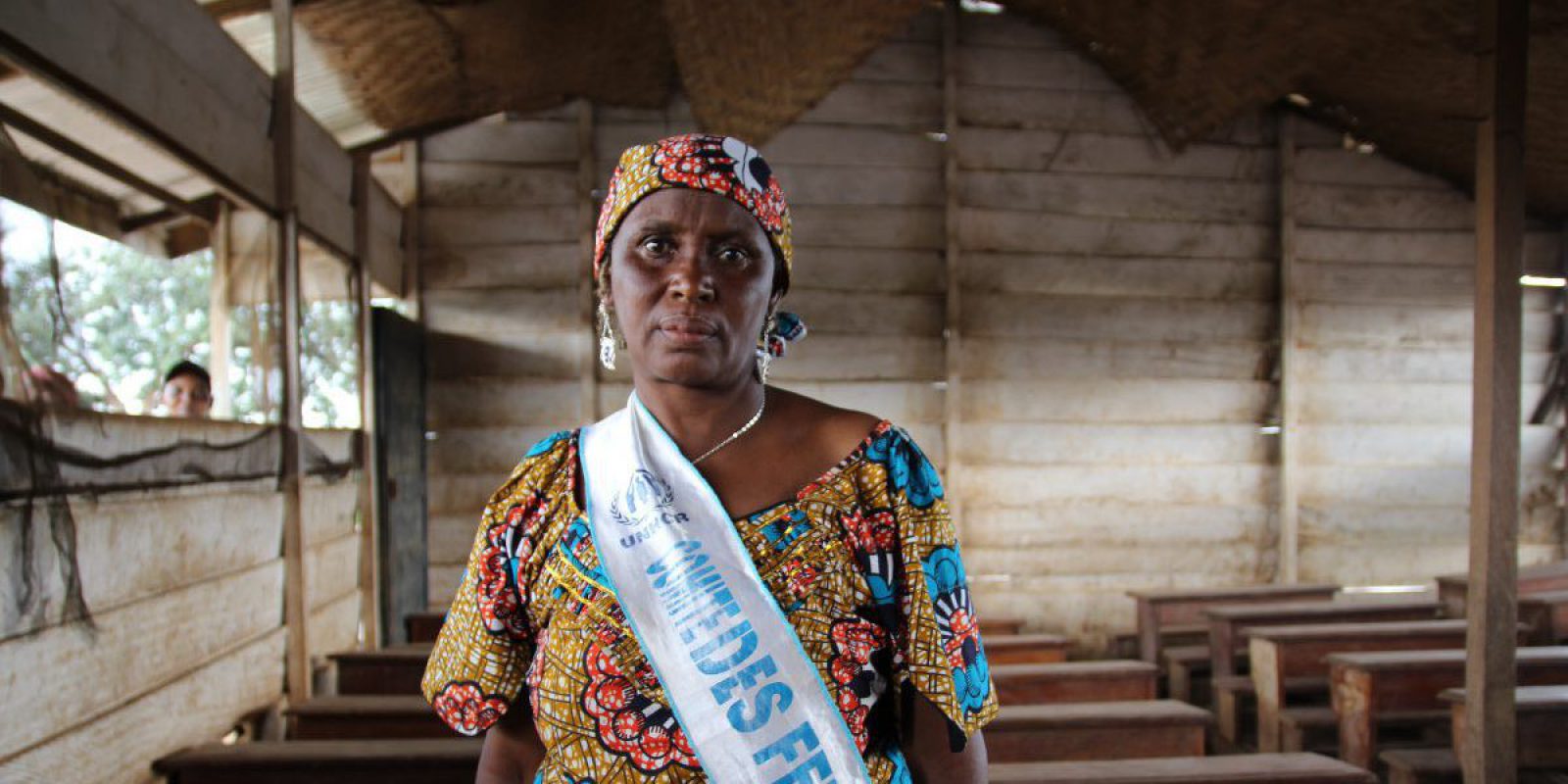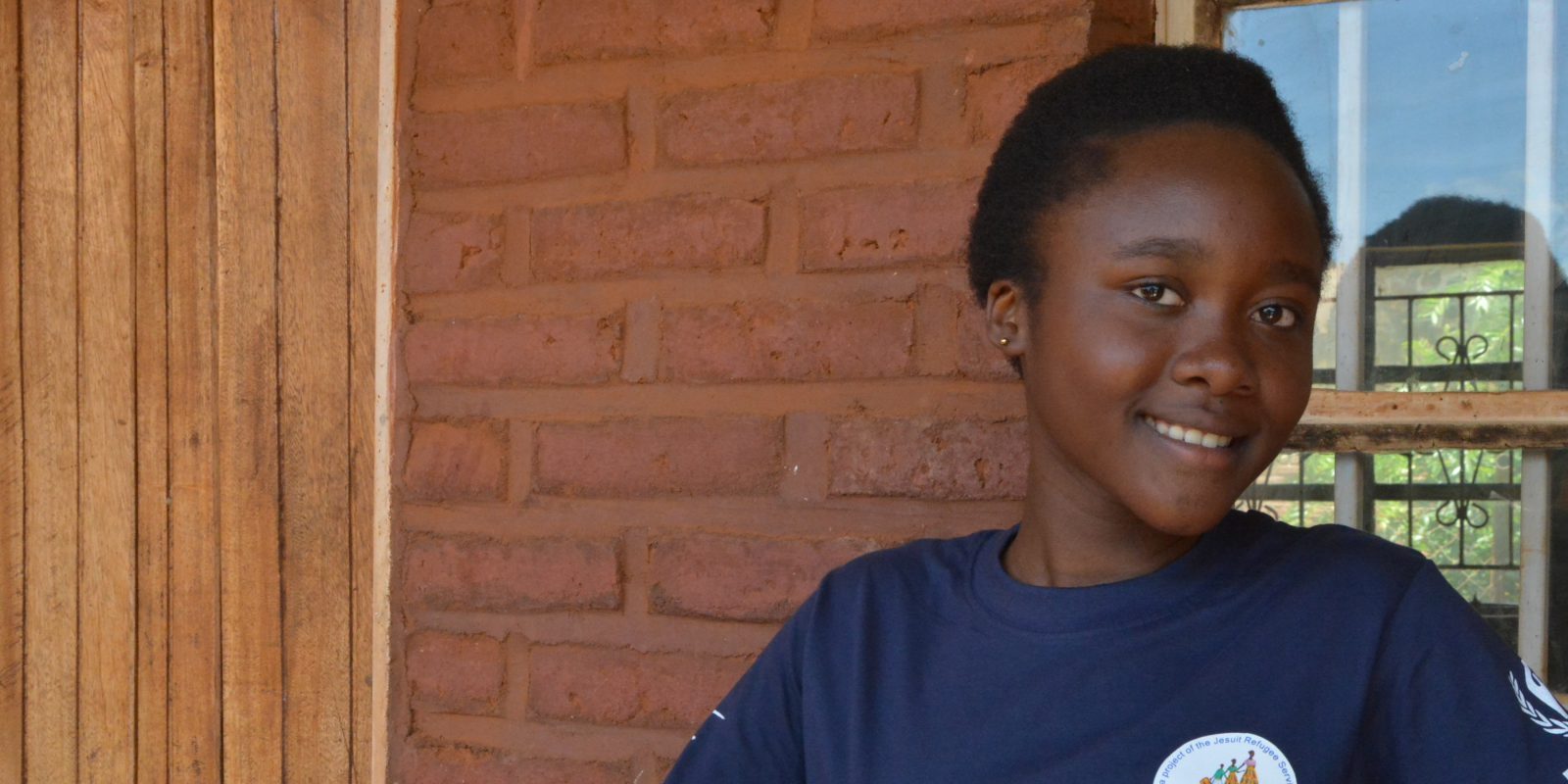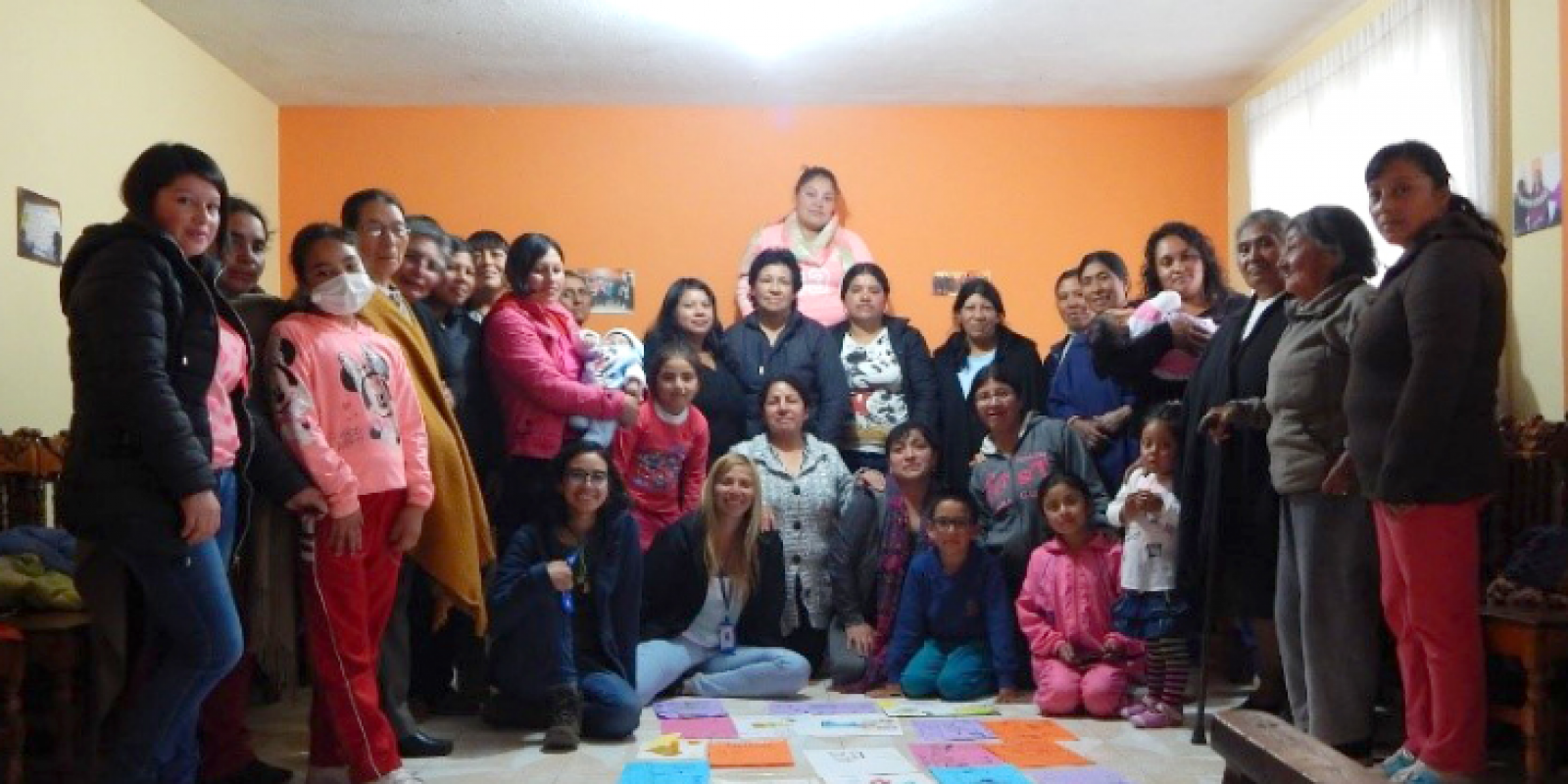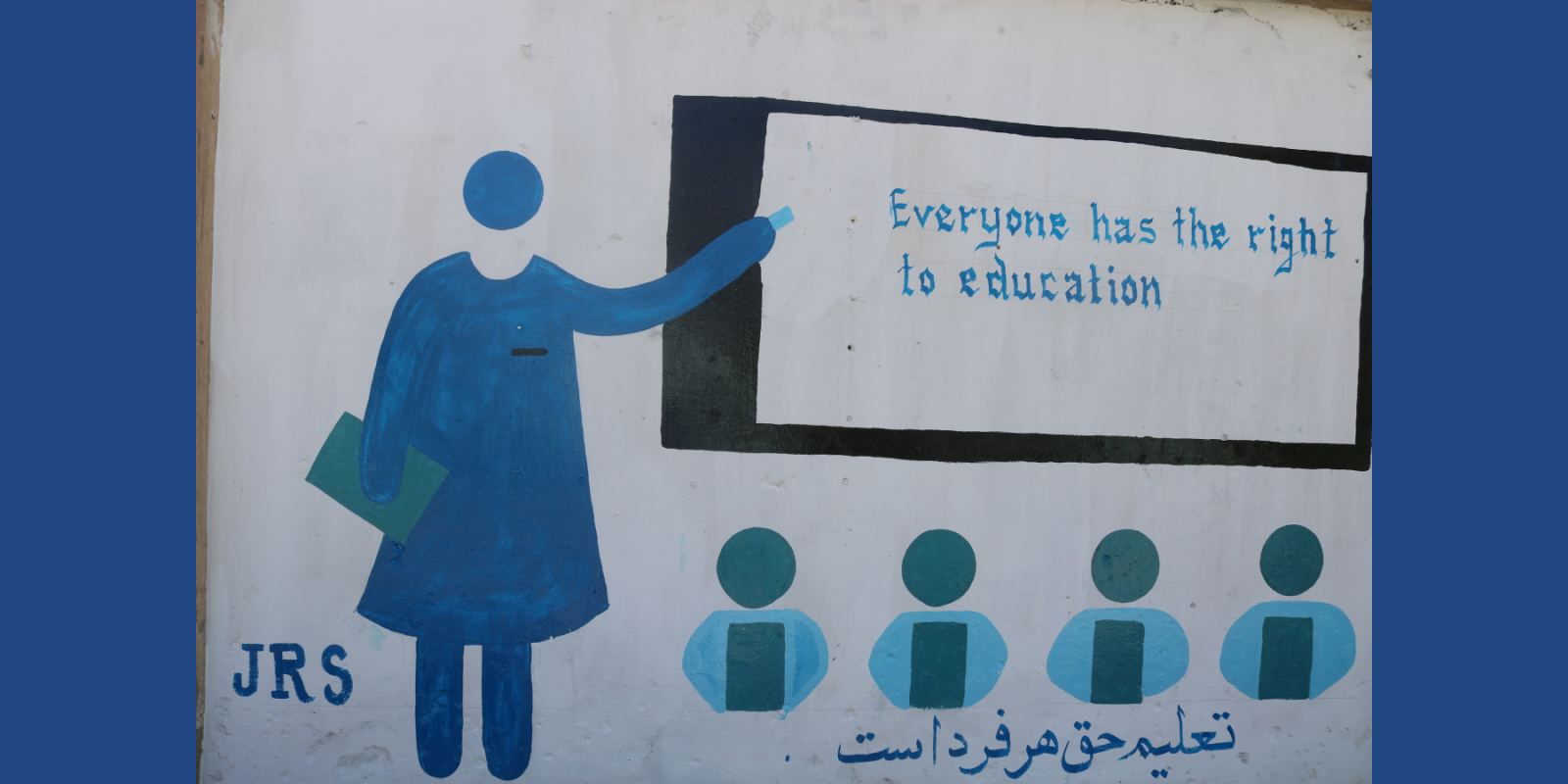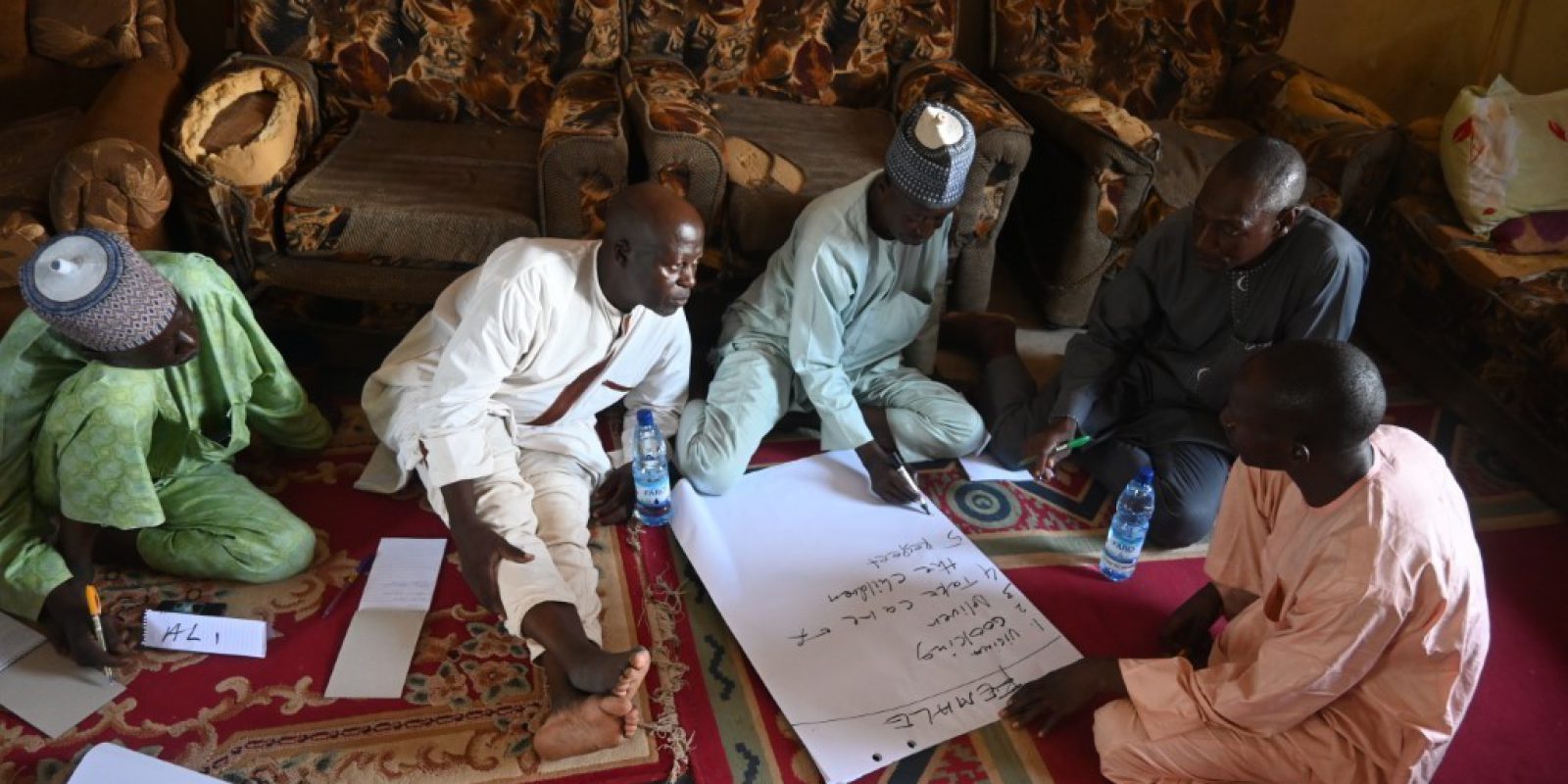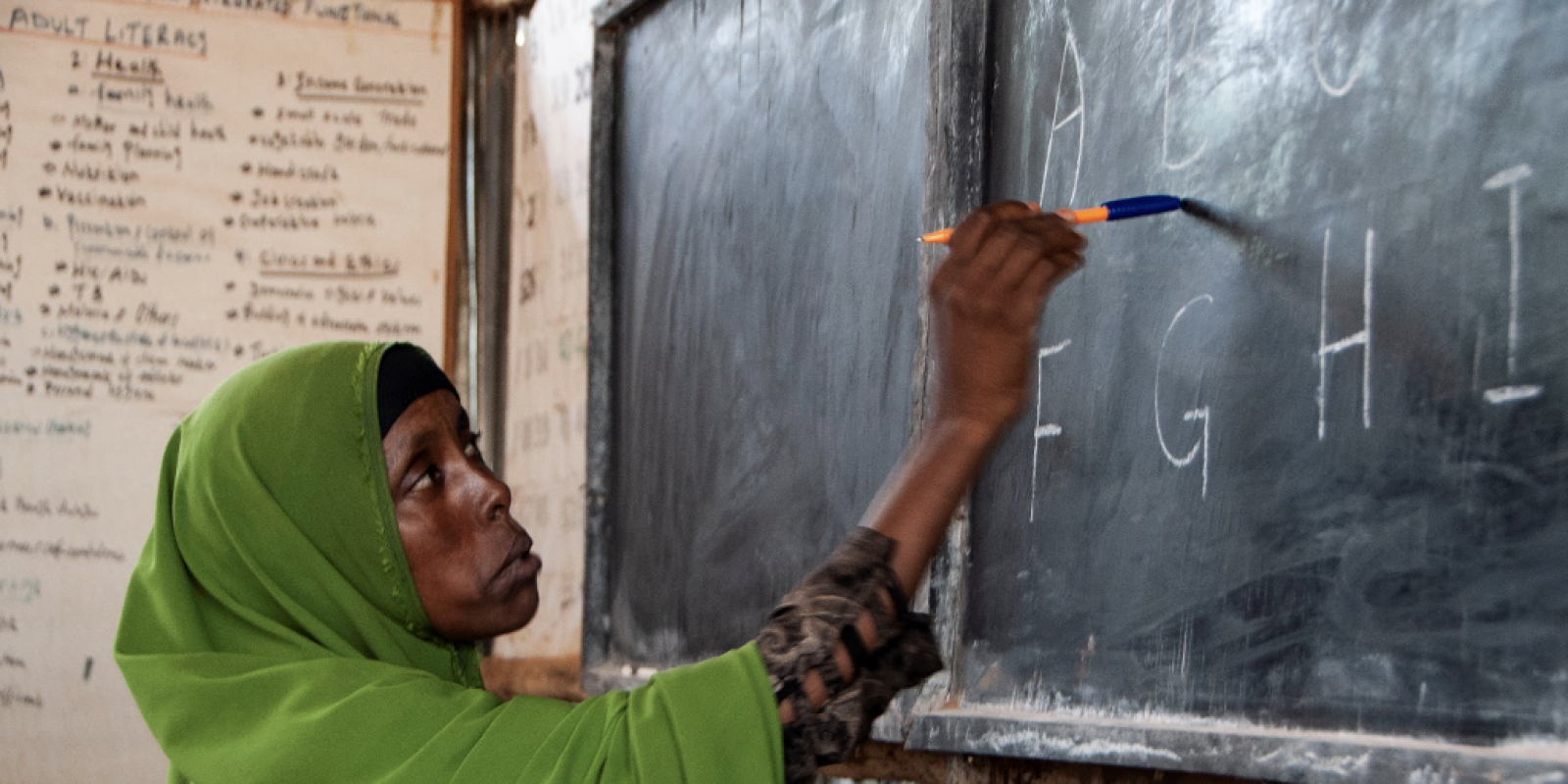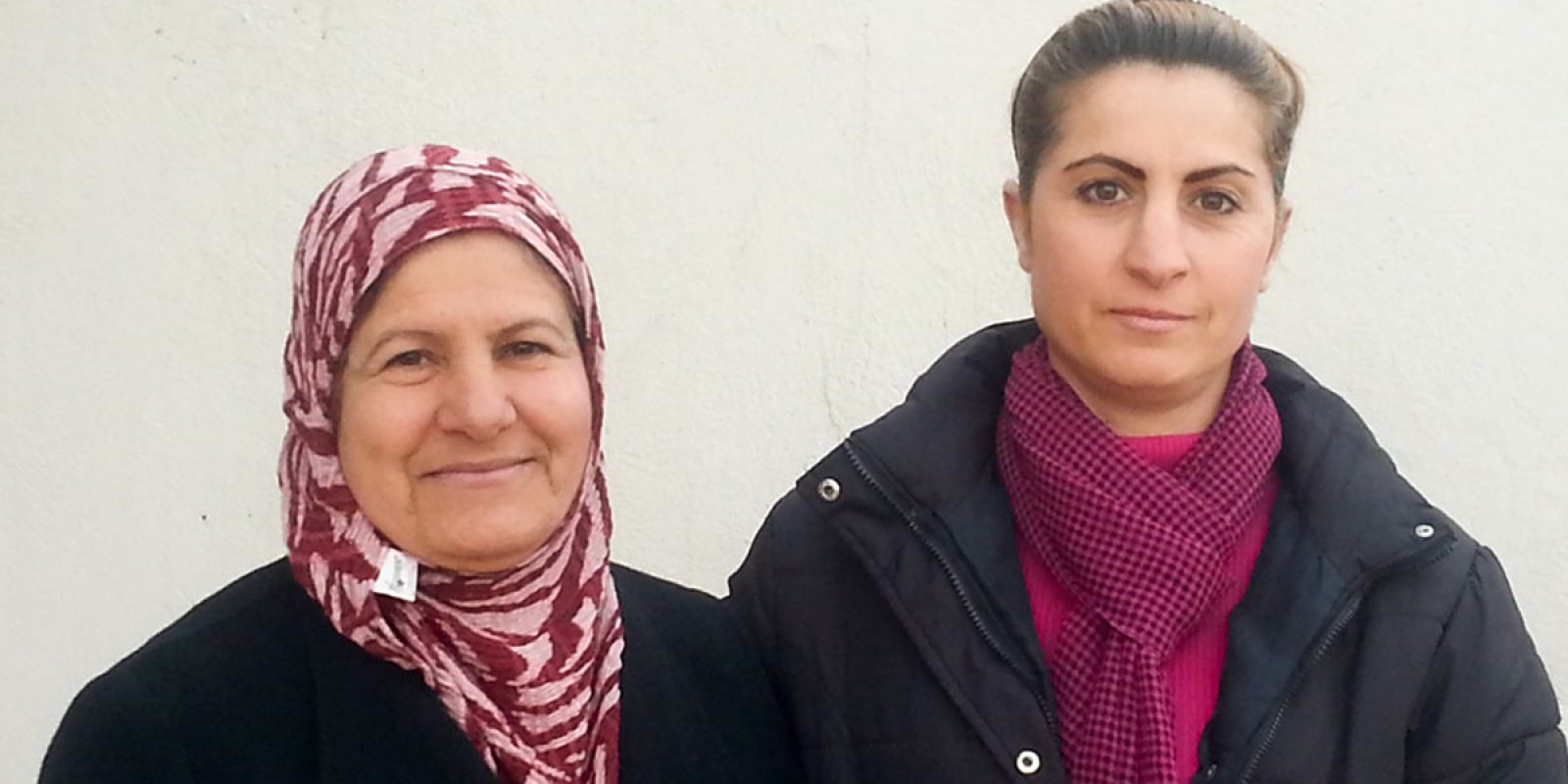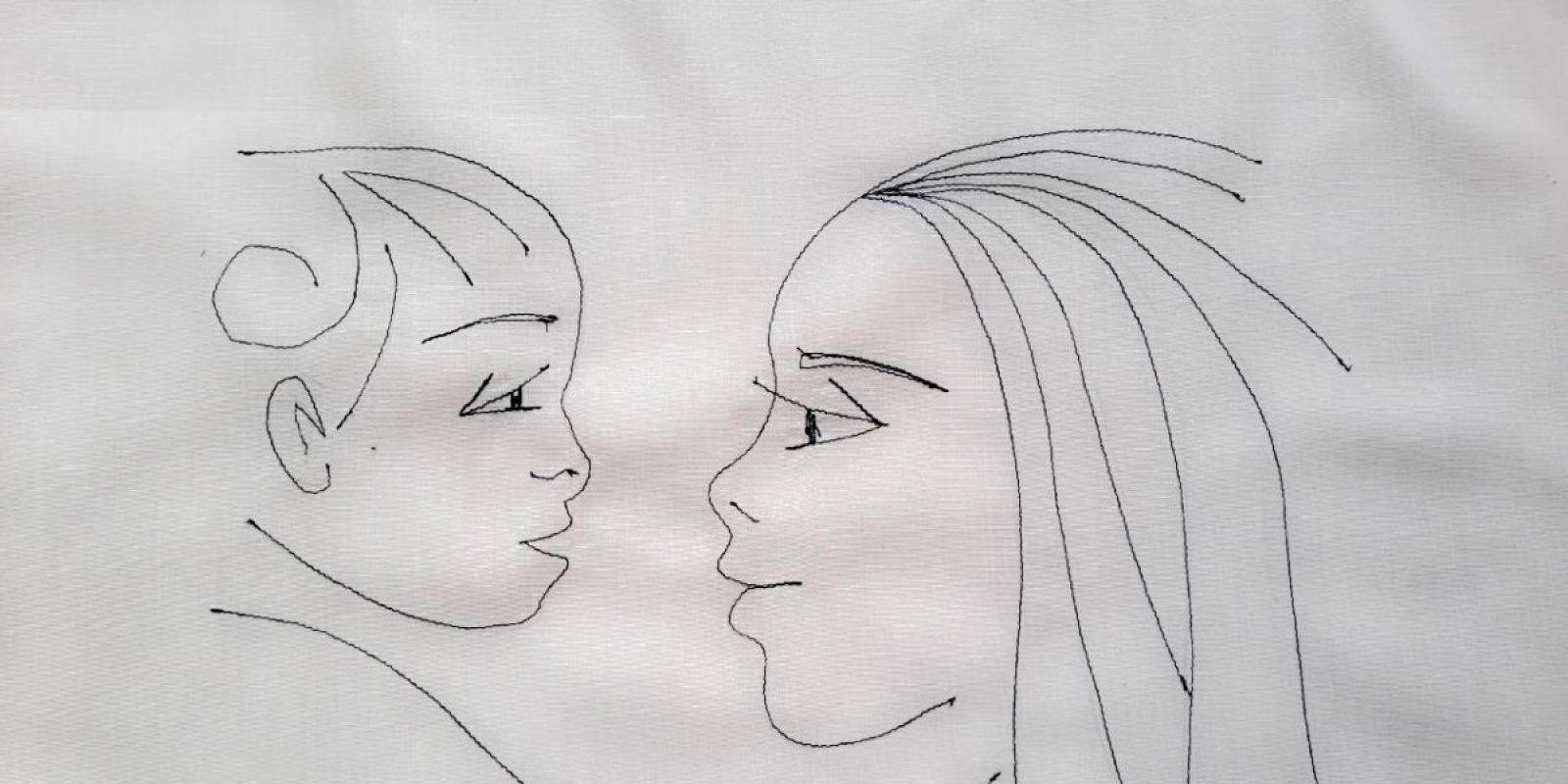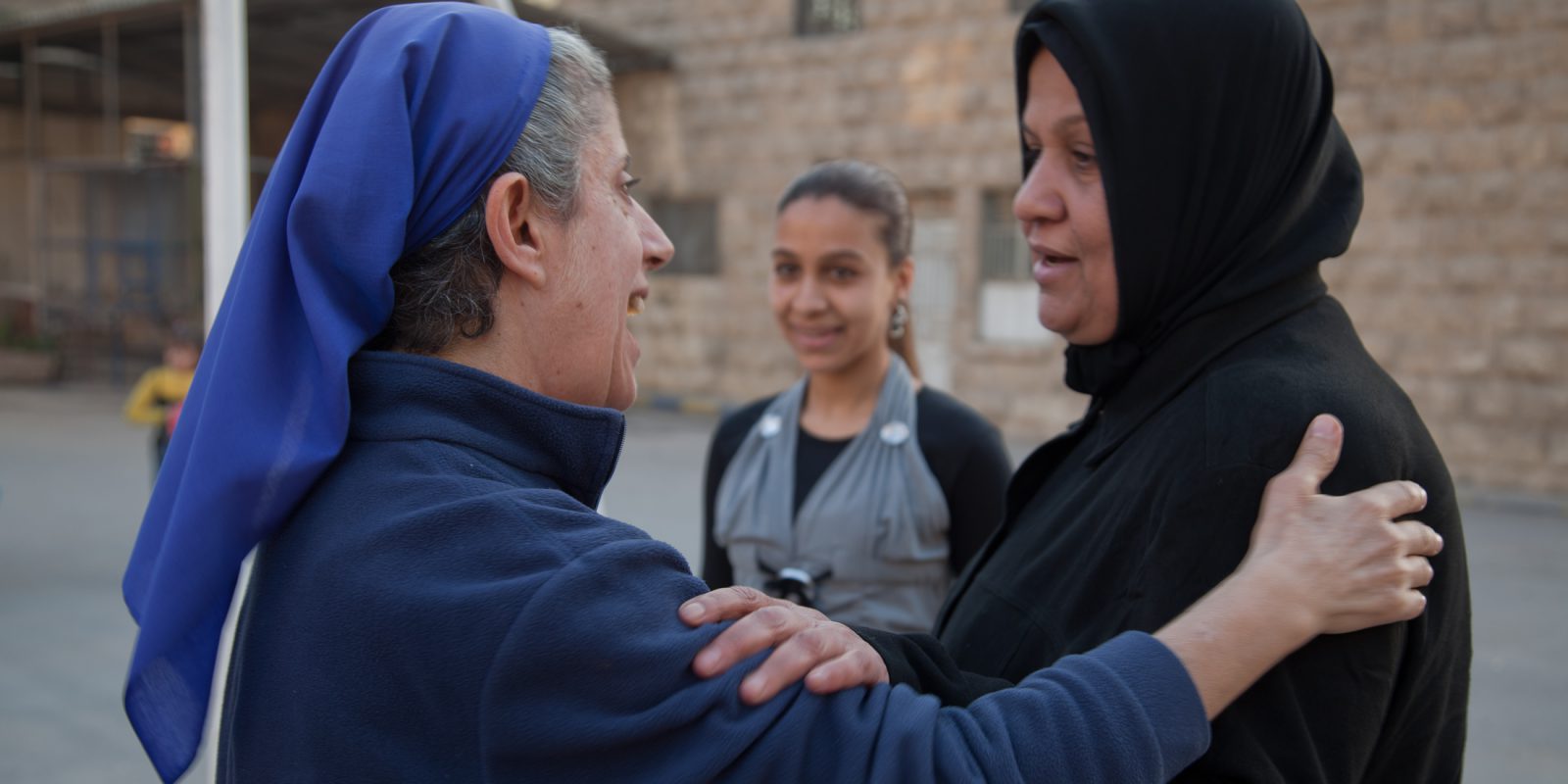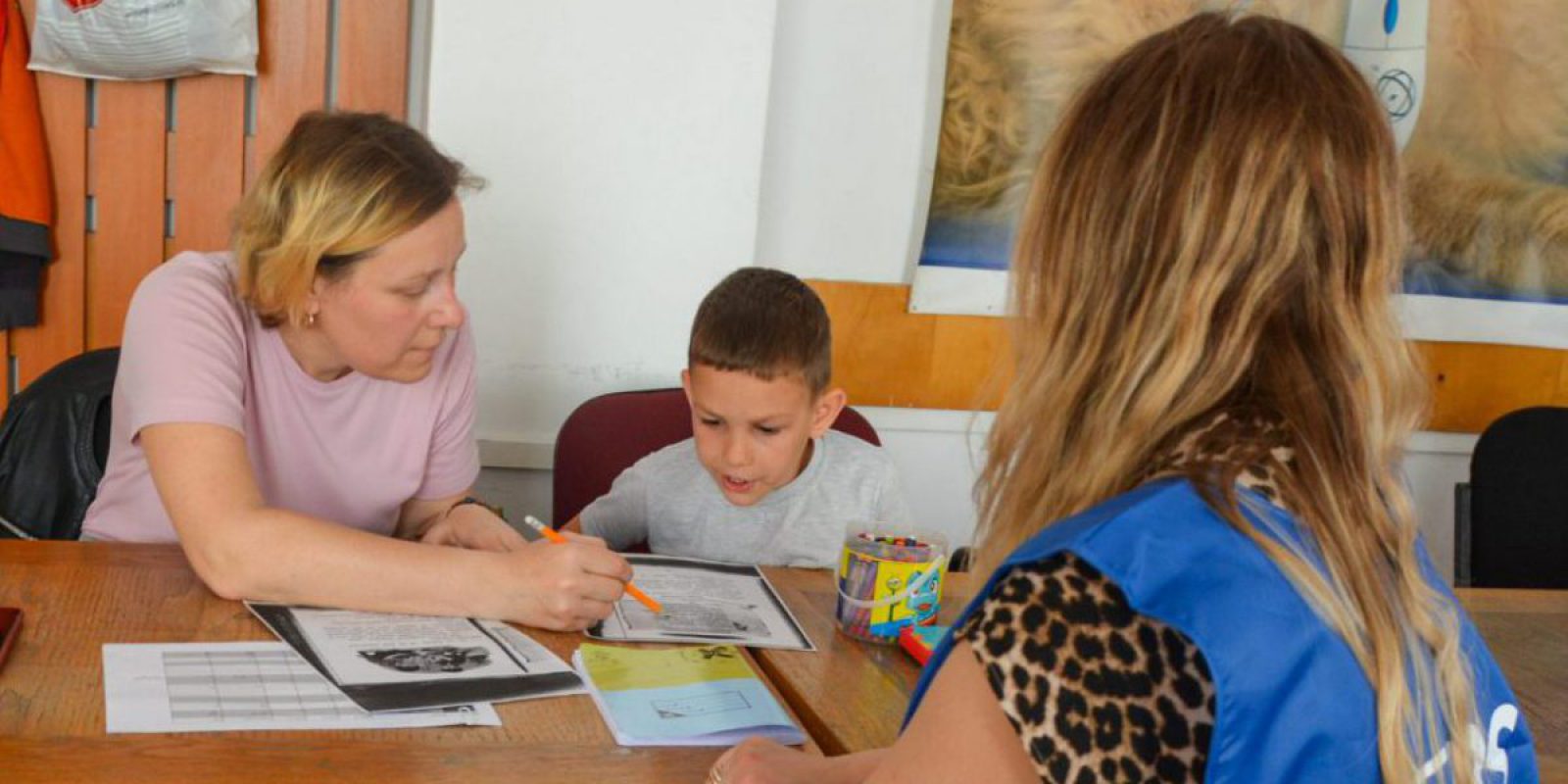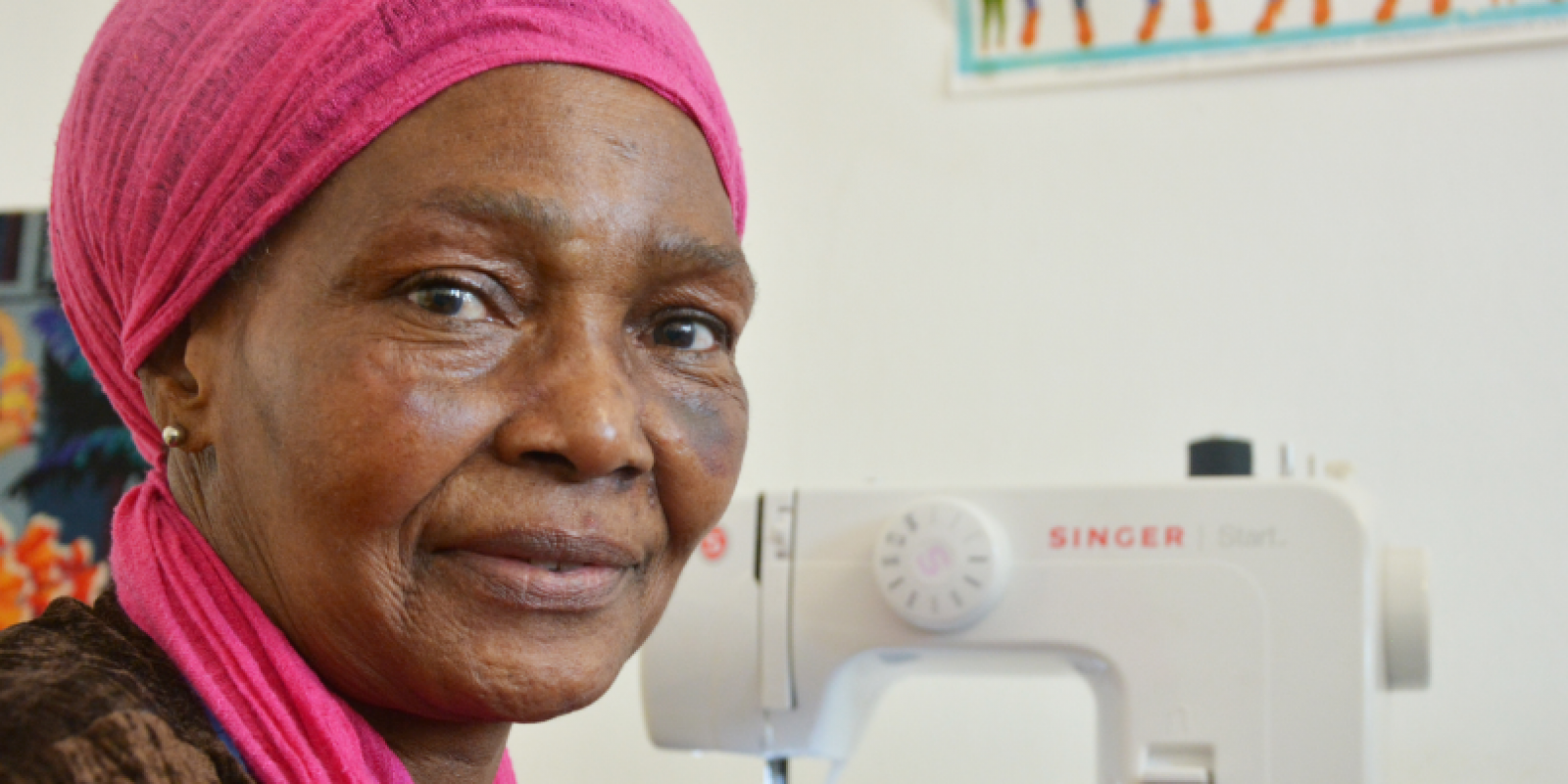#EmpowerHer
JRS Programs for Women and Girls
Displaced women and girls face a unique set of risks in comparison to their male counterparts.

In most societies, women face violence, discrimination, and abuse at disproportionate rates and being displaced exacerbates this problem. Social and cultural norms keep girls at home in varying refugee communities under the belief that boys have greater future earning potential. Religious and traditional values also discourage education and prioritize marriage, resulting in a high rate of child marriage and early pregnancy in some developing countries.

JRS believes that in order to ensure the wellbeing of refugee women and girls, it is necessary to develop a holistic understanding of the challenges they face. The solutions that JRS provides to overcome and reduce these challenges form a comprehensive strategy: integrating mental health and psychosocial support services (MHPSS), market-based livelihood programs, gender responsive education, and peace and reconciliation initiatives.
Agents of Change
Khena
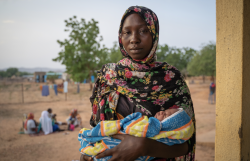
Khena gave birth four days prior to the BAC exams in Chad in 2022. After insisting she continue her education, she brought her newborn with her and joined joined JRS, UNHCR and partners’ compound to travel from Goz-Amir to Djabal camp to take part in the BAC exam in Goz-Beida.
While Khena participated in the different BAC tests, her baby was taken care of at the nursery provided by JRS
Pastora
Pastora is a Community Leader in the Panorama neighborhood, in Soacha, a town at the outskirts of Bogotá, Colombia. When she arrived, she noticed a lack of basic necessities for migrants available and also witnessed gender-based violence, a lack of opportunities for children, and no playgrounds in the neighborhood.
“It was because of this, that an initiative to help was born in me”, she explains. It was community leaders like Pastora that worked hard to introduce essential services like electricity, running water, and sewage systems in the area to enhance the quality of life in Panorama.
Agnes
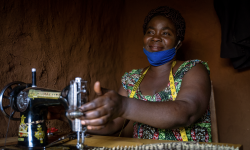
Agnes was assisted by JRS through support groups and micro credits in 2020. It was there that she gained the confidence and self-sufficiency to start her own business. Determined to assist others in the same way, she decided to open a sewing shop in the refugee camp to support women victims of gender-based violence.
Khalida
 Khalida, an active member of her community and a mother of seven girls and two boys, was displaced by the war in Syria with her family and lived under the control of the Islamic State. Although the terrorist group discontinued all education opportunities, she never stopped believing in the power of education and her power as a mother.
Khalida, an active member of her community and a mother of seven girls and two boys, was displaced by the war in Syria with her family and lived under the control of the Islamic State. Although the terrorist group discontinued all education opportunities, she never stopped believing in the power of education and her power as a mother.
She ensured all of her children continued to receive schooling and graduate from university. With JRS’s support and guidance, Khalida created a community garden for school-aged children to play in as an initiative to promote mental and emotional health.
Alla
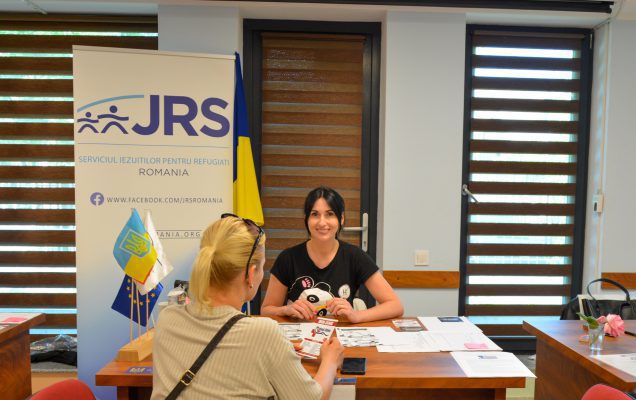
Alla fled Ukraine with her two sons, aged 7 and 12, during the Ukraine crisis in 2022. After receiving support from JRS, she saw many other Ukrainian women coming through with children that she wanted to help.
She joined the JRS staff in Bucharest along with 12 other Ukrainian women, where she helps with language interpretation, welcoming refugees, and the facilitation of social vouchers.
Hazida
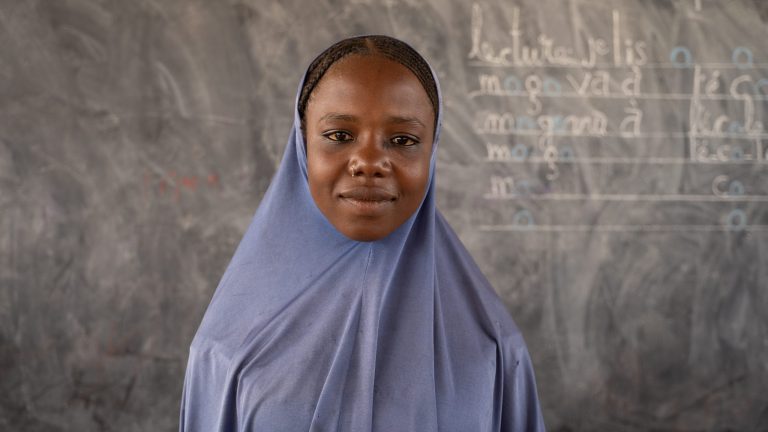
Hazida was afraid to go to school during her menstrual cycle. The stigma attached to it combined with a lack of proper attention, care, and resources, makes it nearly impossible. Partnered with Education Cannot Wait, UNICEF, and the Chadian Ministry of Education & Professional Training, JRS Chad has provided the foundation for Menstrual Health Management (MHM) so that girls can confidently continue their education.
Attending school regularly now, Hazida has plans of becoming an educator herself.

